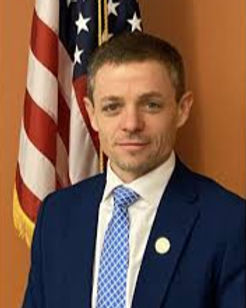
Innovation in Corrections Webinar: Arizona


Featuring the Arizona Department of Corrections, Rehabilitation and Reentry Director Dr. Ryan Thornell
Arizona’s Department of Corrections Rehabilitation & Reentry is:
-
Improving organizational culture
-
Strengthening public safety in AZ
-
Increasing community partnerships
-
Creating a safer environment for residents and staff
-
Enhancing organizational transparency and fiscal responsibility
-
Streamlining service delivery
Key Themes:
-
Cultural Transformation Matters
Revamping staff norms, leadership behavior, and transparency builds trust with residents and creates a safer environment youtube.com.
-
Partnerships with Community are Essential
Collaborating with local nonprofits and stakeholders enhances reentry, reduces isolation, and diversifies resources .
-
Safety for All is Non-Negotiable
A safer corrections environment protects both residents and staff—triggering greater engagement and better outcomes .
-
Transparency Drives Accountability
Open reporting and clear data-sharing minimize mistrust and empower all stakeholders
-
Who Should Watch:
If you are are trying to change your department, you need to hear from someone who is in the middle of doing it, system-wide reform goes beyond policy tweaks—it demands deep cultural change anchored in trust, openness, and collaboration. Dr. Thornell shares strategies including building safe spaces for staff and residents, forming local partnerships to support transition out of incarceration, and introducing transparent metrics to track progress.
We sit down with Director Thornell, Chris Poulos of the Center for Justice and Human Dignity, and Dr. Lisa Clements of the Tom Clements Foundation for a conversation that we hope you find both inspirational and practical steps for jurisdictions seeking to reshape corrections into environments that are safe, rehabilitative, and community-centered.
-
This event was sponsored jointly by the Clements Foundation, the Center for Justice and Human Dignity, and Arizona DOCRR and was streamed live. The recording is now being offered free of charge to the public.
Challenge questions for your department
-
Cultural Mindset: How would you rate your facility’s current culture—punitive or rehabilitative? How would your residents rate it? What one change could begin shifting it?
-
Community Involvement: Which local organizations are you partnering with, and where are missed opportunities?
-
Safety Measures: Are staff and residents equally protected? What joint safety measures could improve daily life? When is the last time you asked your staff or residents how they felt about their safety?
-
Transparency Check: How openly is data shared with stakeholders internally and externally? What barriers exist to full disclosure?
-
Homegrown Defaults: Have your staff and residents participated directly in creating core policies, or are those top‑down? How might greater co-creation change things?
You may never know what results come of your actions. But if you do nothing, there will be no result. - Mahatma Gandhi
Creating a safer criminal justice system starts with you - ideas you could implement within your department
-
Initiate Culture Workshops
Hold regular sessions where staff and residents co-create facility values and expectations.
-
Launch Community Alliances
Establish relationships with local community health providers, housing organizations, and employment agencies for coordinated support post-release.
-
Publish Safety Dashboards
Make safety and incident reports publicly accessible to demonstrate transparency and accountability.
-
Develop Joint Safety Protocols
Involve correctional officers and residents in co-designing safety guidelines and response systems.
-
Conduct Transparency Audits
Review procedures to identify information gaps, then implement public-facing changes (e.g., policy summaries, simple reports).
Learn more about how the Arizona Department of Corrections, Rehabilitation & Reentry carries out its vision of REIMAGINING CORRECTIONS through four overarching and mission-centered goals.

